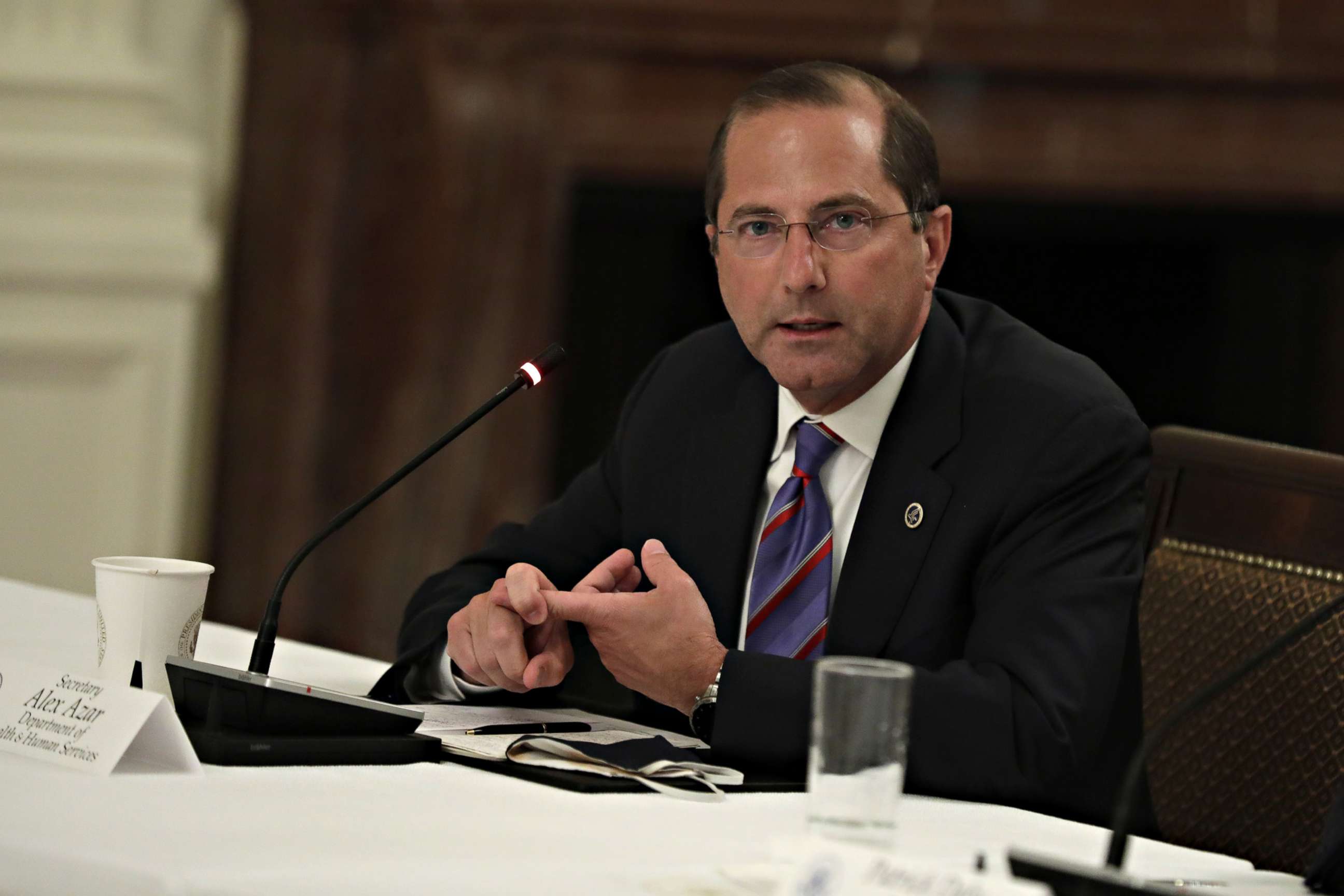Doctors concerned about complex legal landscape for transgender patients: ANALYSIS
A revision removing references to gender identity goes into effect mid-August.
Discrimination can be an everyday occurrence for transgender people – even at the doctor's office.
Enacted a decade ago, the Affordable Care Act forbid discrimination among health programs that receive federal funding. Then, in 2016, the Department of Health and Human Services determined that the basis of sex discrimination as outlined in the Affordable Care Act also included reference to gender identity -- a win for the transgender community.
But in June 2020, HHS announced a new final rule excluding specific protections for transgender people. That rule is set to go into effect in mid-August.
Now, doctors are sounding the alarm in a editorial published in the New England Journal of Medicine, saying that under the new rule it once again will be legal for doctors to turn away transgender patients seeking care, effectively stripping them of protections that have been in place for four years.

"Many transgender people are very anxious and fearful about the potential effect of these changes," said Dr. Asa Radix, senior director of research and education at the Callen-Lorde Community Health Center and a co-author of the NEJM editorial. "Under the revised rule a medical provider or insurance company could decide not to treat a transgender person for conditions like strep throat or for cancer, just because they do not want to treat a transgender person. This is especially concerning amidst the COVID-19 pandemic."
"People are already anxious and worried about their health," added Dr. Hansel Arroyo, director of psychiatry and behavioral medicine at the Center for Transgender Medicine and Surgery at Mount Sinai Hospital. "I have patients who fear that they may be turned away from their medical needs or may not be able to continue their ongoing medical care."
I would like to see a broader and science-based definition of sex and gender identity used when creating policies, but more importantly, a process that is not driven by sex or gender -- one that looks at all humans as equals.
Despite advancements in medical treatments for transgender people, when it comes to regular checkups many of them still face widespread discrimination in doctor's offices across the United States, with a 2015 survey finding that over one-third have been harassed or refused care.
Under the Trump administration, HHS revised its position on transgender rights because it said the Obama-era rule had gone too far in its interpretation of "sex discrimination," according to a federal court.
According to Roger Severino, director of the Office for Civil Rights at HHS, "The gender identity and termination of pregnancy provisions of the 2016 rule were held unlawful and unenforceable by a federal court in December 2016, and a court vacated that language in October 2019."
But advocates say that the new HHS rule is especially ill-timed during the pandemic.
"The timing of this announcement is particularly deadly in the midst of a pandemic that disproportionately impacts transgender populations and communities of color," said co-author Sula Malina, a social worker in training at the Columbia School of Social Work.

People who identify as transgender have not always been specifically protected under federal anti-discrimination laws such as the Civil Rights Act of 1964, but there are signs that is changing. In June 2020 -- the same month the Trump administration issued its new final rule -- the Supreme Court found that it's illegal for employers to discriminate against members of the LGBTQ community, including transgender people.
That means today, the Supreme Court has decided the Civil Rights Act's prohibition of "sex discrimination" also applies to transgender people. Now, advocates and doctors are hoping the Supreme Court ruling effectively reinstates the Obama-era final rule, which also urged a broader interpretation of sex discrimination in regards to the Affordable Care Act.
"Earlier this year, the Supreme Court made clear that federal anti-discrimination laws protect LGBTQ people. That empowers federal agencies to step in and prevent discrimination against LGBTQ people in lots of different areas -- including in the provision of health care. It's disappointing that HHS is refusing to do so," said Ashok Chandran, assistant counsel at the NAACP Legal Defense and Educational Fund.
While it's still not yet clear how the revised HHS final rule and the Supreme Court decision will impact transgender people seeking medical care, lawyers consulted by ABC News say it's likely the Supreme Court's interpretation will mean transgender people are protected from discrimination in a doctor's office, meaning gender minorities would be protected in a health care context.
In the meantime, the legal and political back-and-forth has been stressful for the transgender community.
"These policies aren't just words on a document, they affect real people in real time," Arroyo said. "I would like to see a broader and science-based definition of sex and gender identity used when creating policies, but more importantly, a process that is not driven by sex or gender -- one that looks at all humans as equals."




